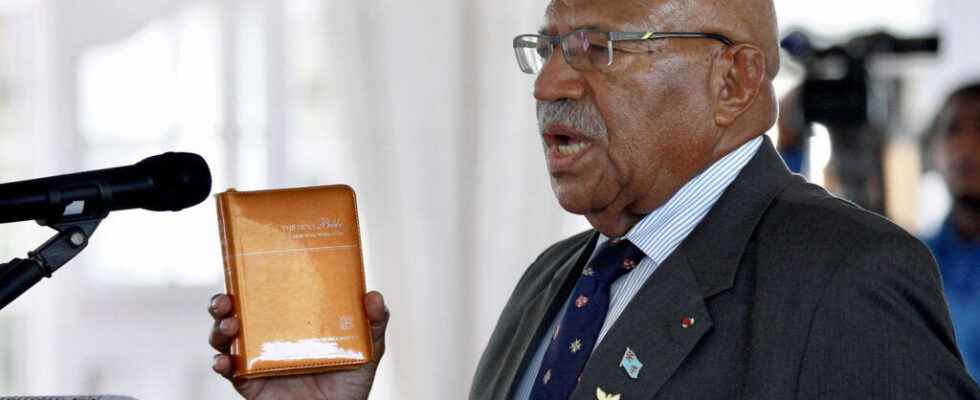Nicknamed “Rambo”, opposition leader Sitiveni Rabuka was confirmed on Saturday (December 24th) as Prime Minister of Fiji, after accusing the outgoing government of fueling “fear and chaos” to frustrate his return to power. to be able to.
Sitiveni Rabuka prevailed over incumbent Prime Minister Frank Bainimarama by 28 votes to 27 in a secret vote in parliament, said the Speaker of the House.
The former prime minister, twice putschist, thus replaces Mr. Bainimarama, who overthrew the government during a military coup in 2006.
Upon leaving Parliament, before being formally sworn in by the President, Mr. Rabuka said he felt ” humble to be the next Prime Minister of Fiji.
As for the incumbent, Mr. Bainimarama left Parliament smiling, seeming to accept his defeat, telling reporters: “ It’s democracy “.
One of the most prosperous nations in the Pacific
Shortly after the result of the vote, European Union Ambassador for the Pacific, Sujiro Seam sent his congratulations to Rabuka on Twitter.
Fiji is one of the most populous and prosperous Pacific island nations. The country moved closer to China during the reign of Bainimarama. His successor has hinted he will instead return to his traditional allies and neighbors Australia and New Zealand.
►Also read: In the South Pacific, Beijing boasts of its regional free trade and security agreement
The army had been deployed in the streets of Suva, following blocked general elections. Citing unconfirmed reports of ethnic violence, Bainimarama said the army was needed to maintain ” Law and order “. But Mr. Rabuka had judged that the outgoing government “ sowed fear and chaos ” and ” tried to inflame the nation based on racial criteria “.
Four coups in 35 years
Fiji, a state of more than 300 islands in the Pacific, has experienced bouts of infighting in the past.
Under the Fijian Constitution, the military has broad powers to intervene in the political sphere and has been implicated in four coups in the past 35 years.
A former Fiji rugby international, Mr Rabuka managed to hammer out a coalition deal with the Social Democratic Party to form government on Friday afternoon. He could, however, have difficulty in holding his coalition which has only 29 seats out of 55 in Parliament, of which only 28 voted for him in the secret ballot.
►Also read: Fiji, Pacific Islands on the front line
(With AFP)
